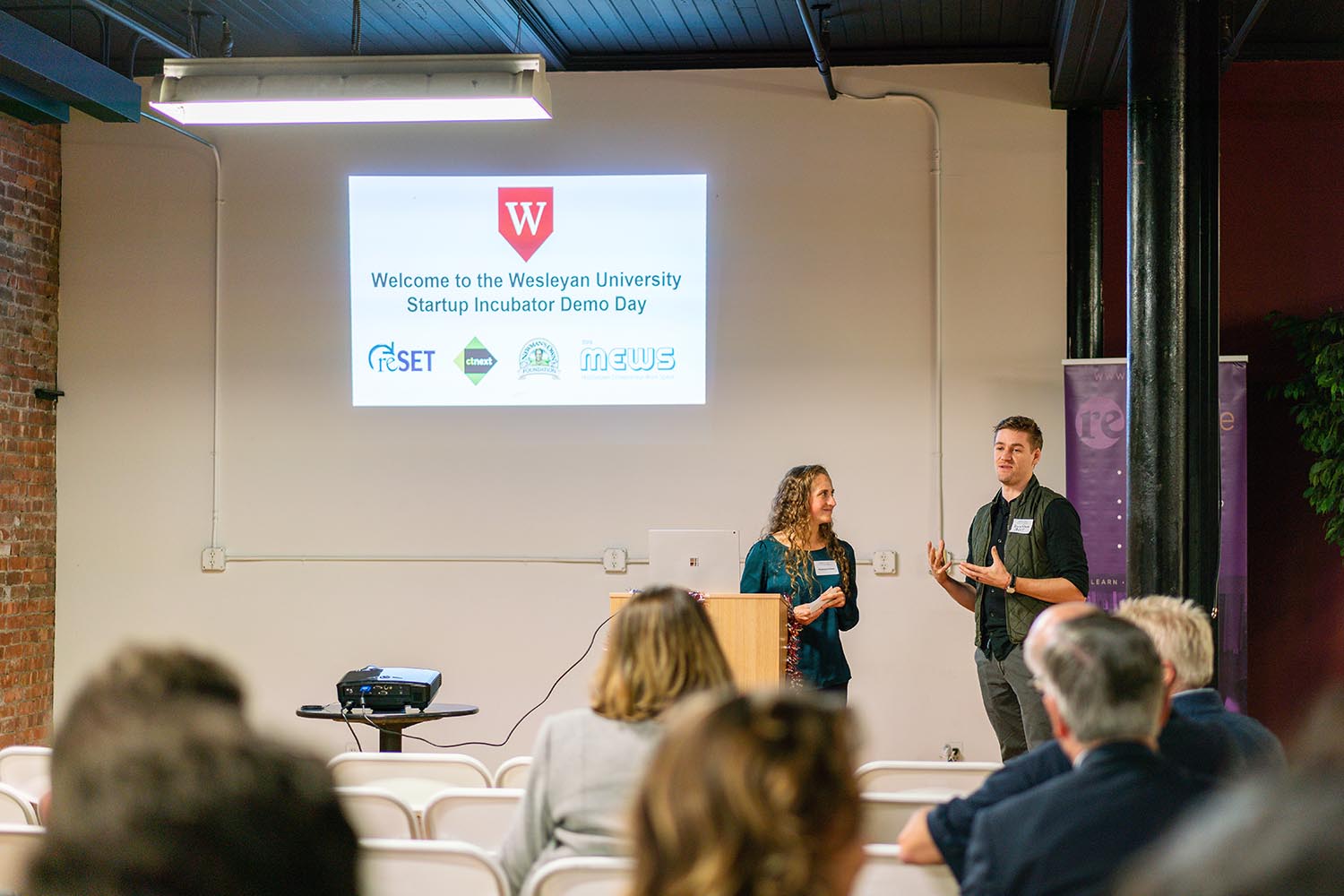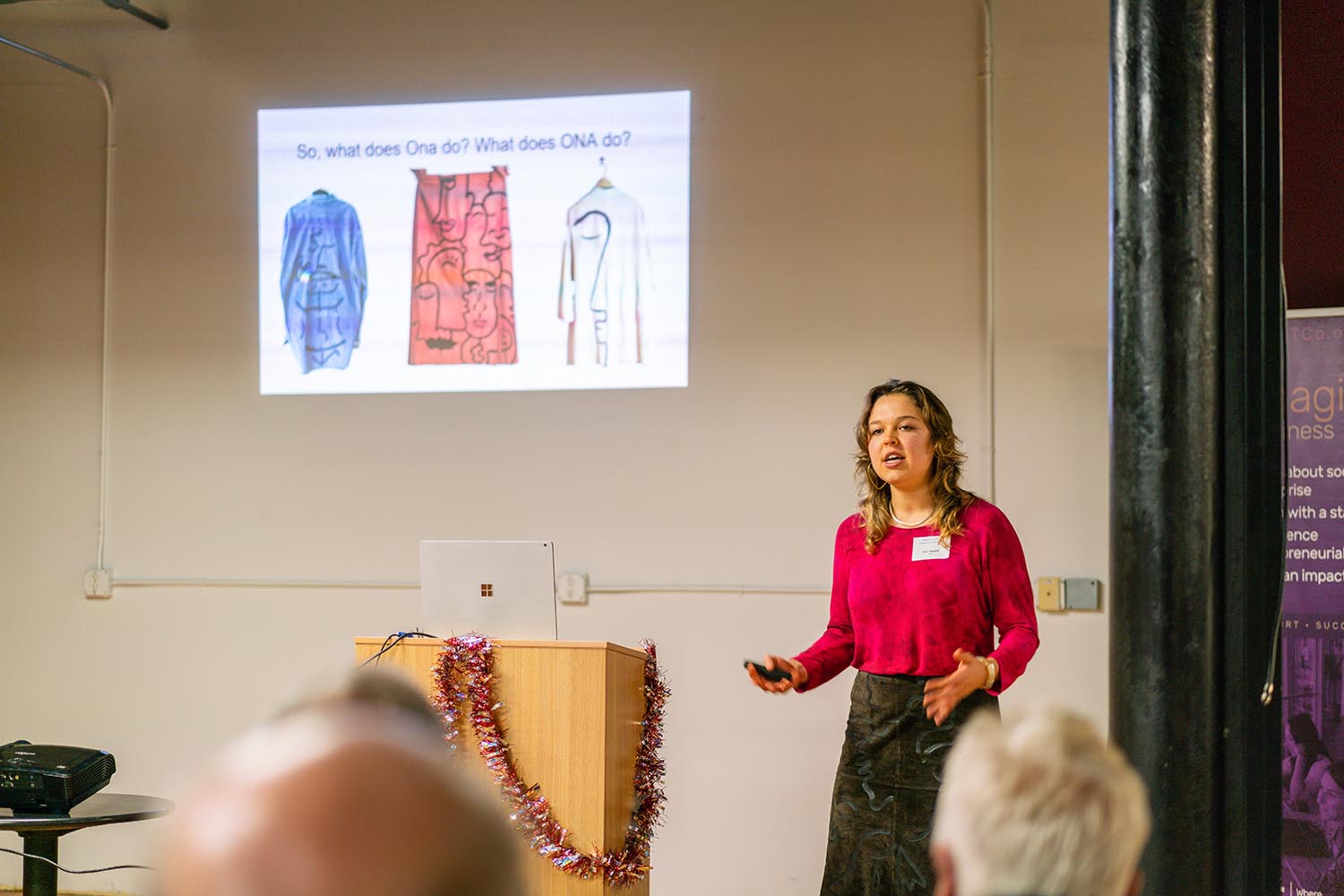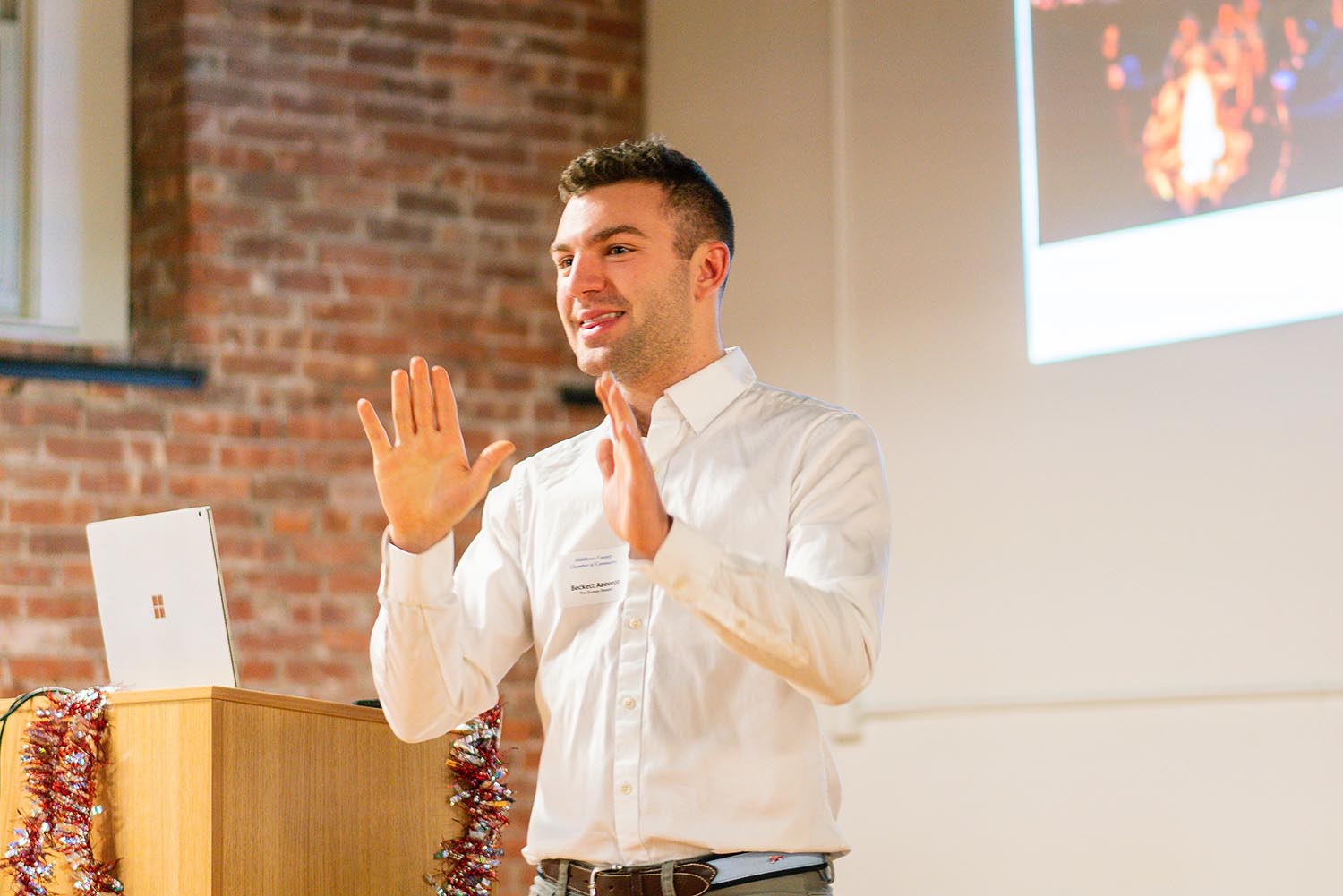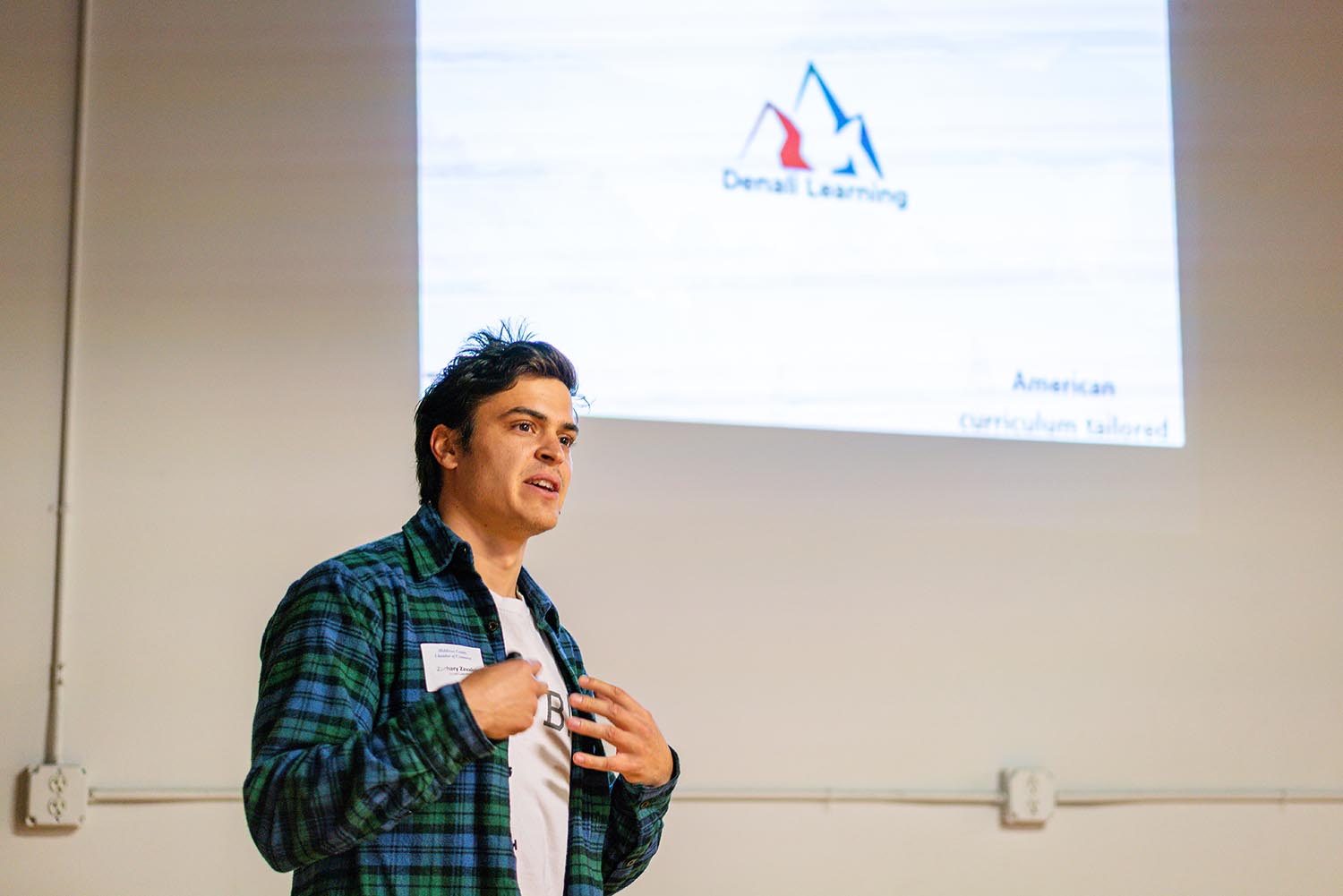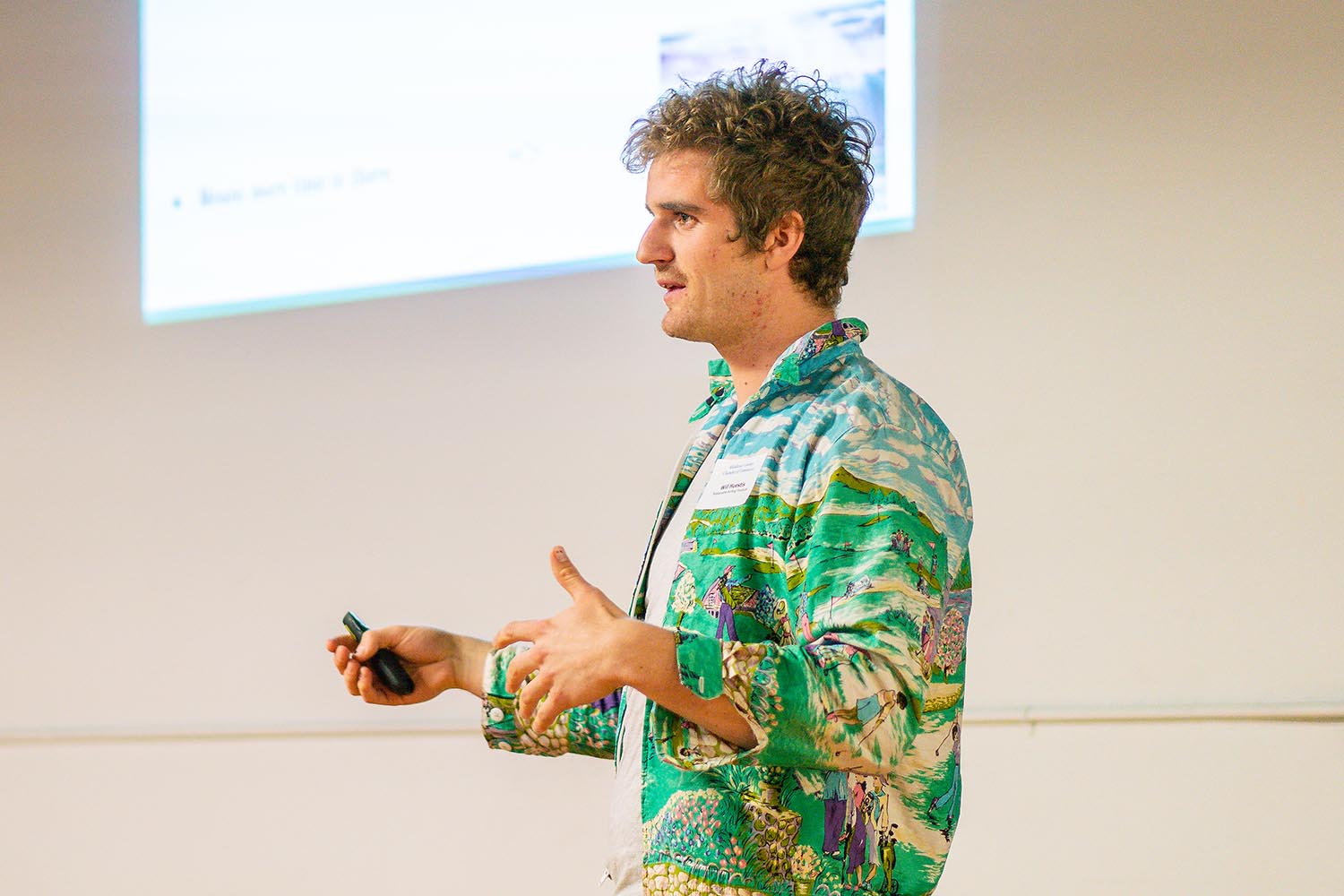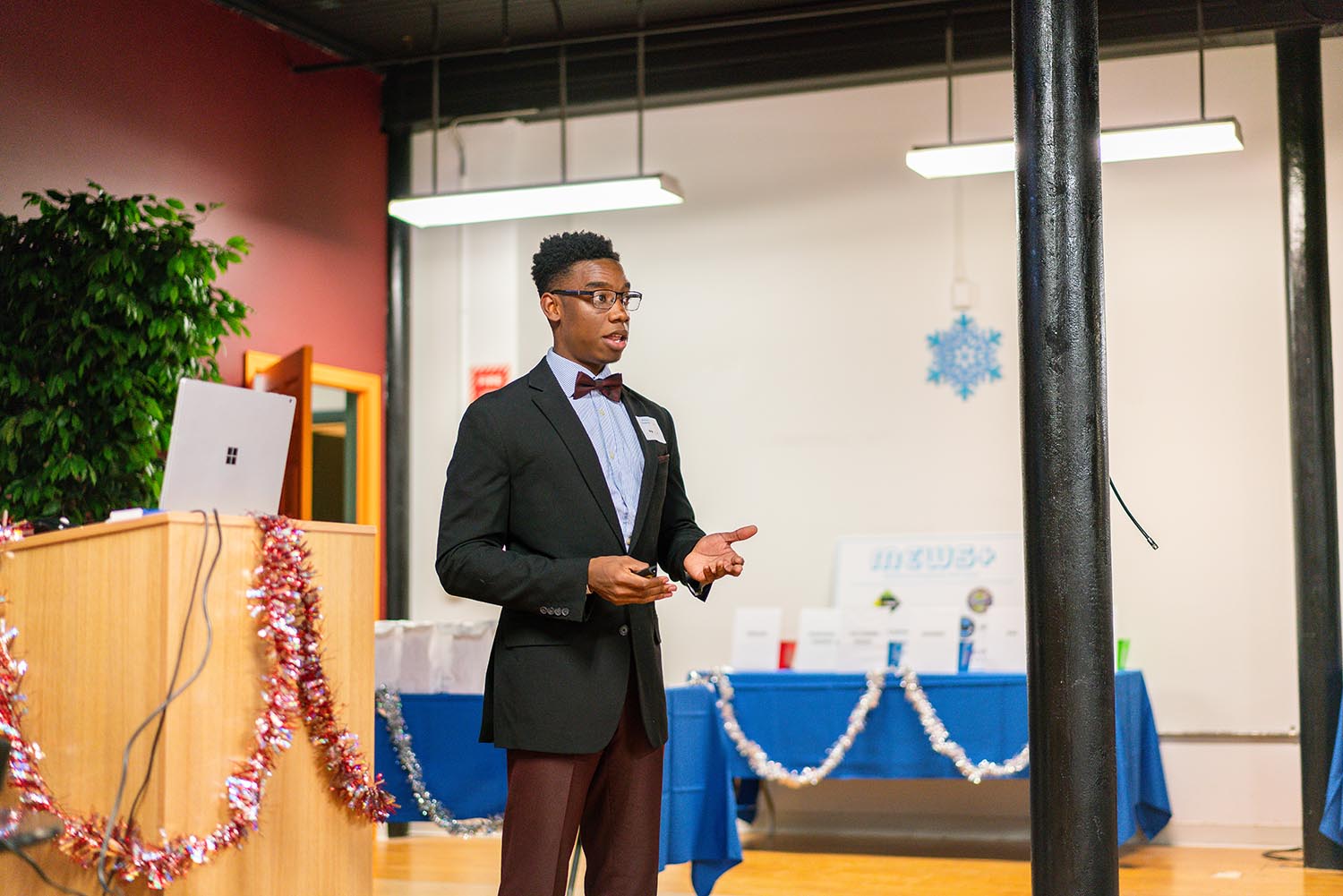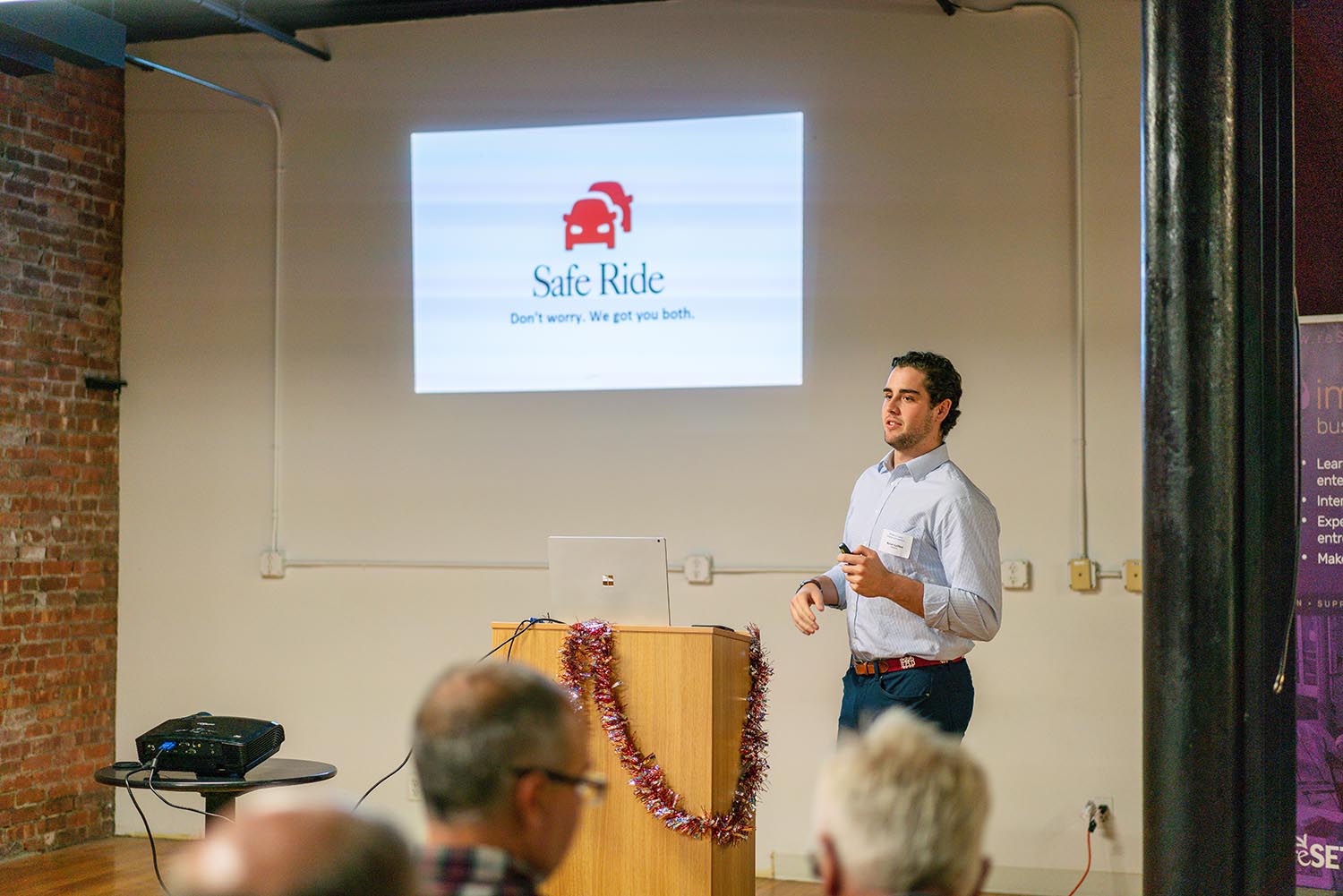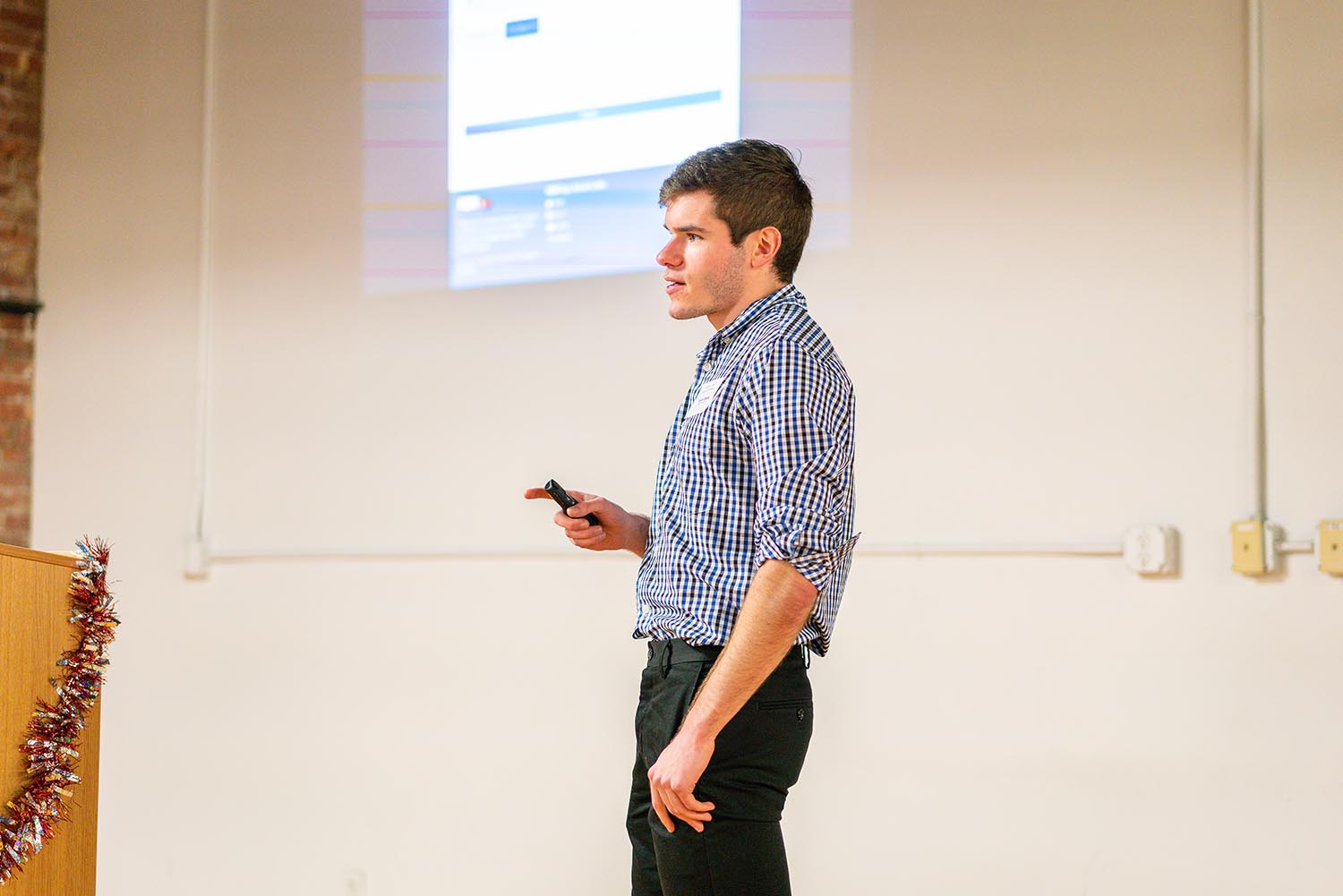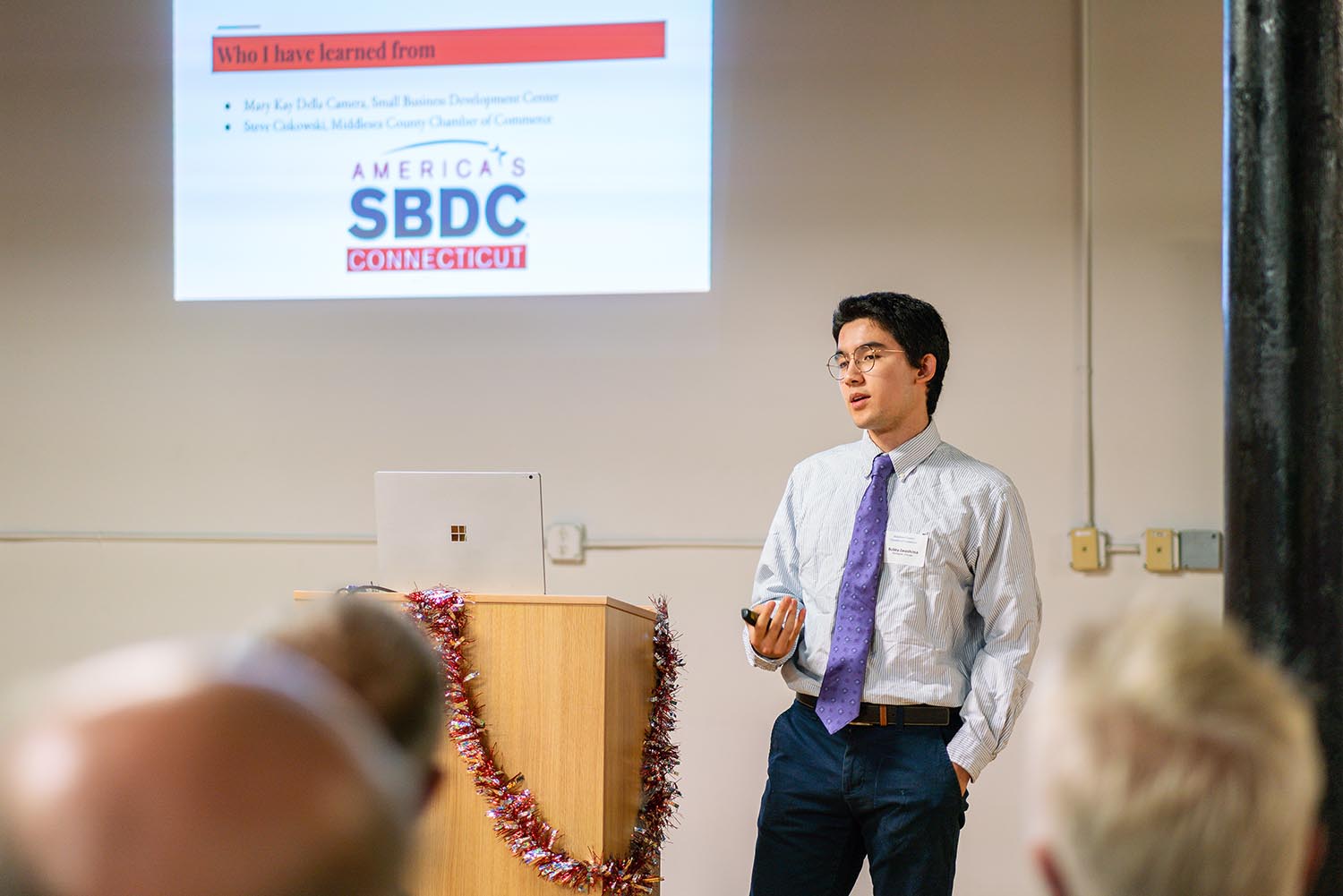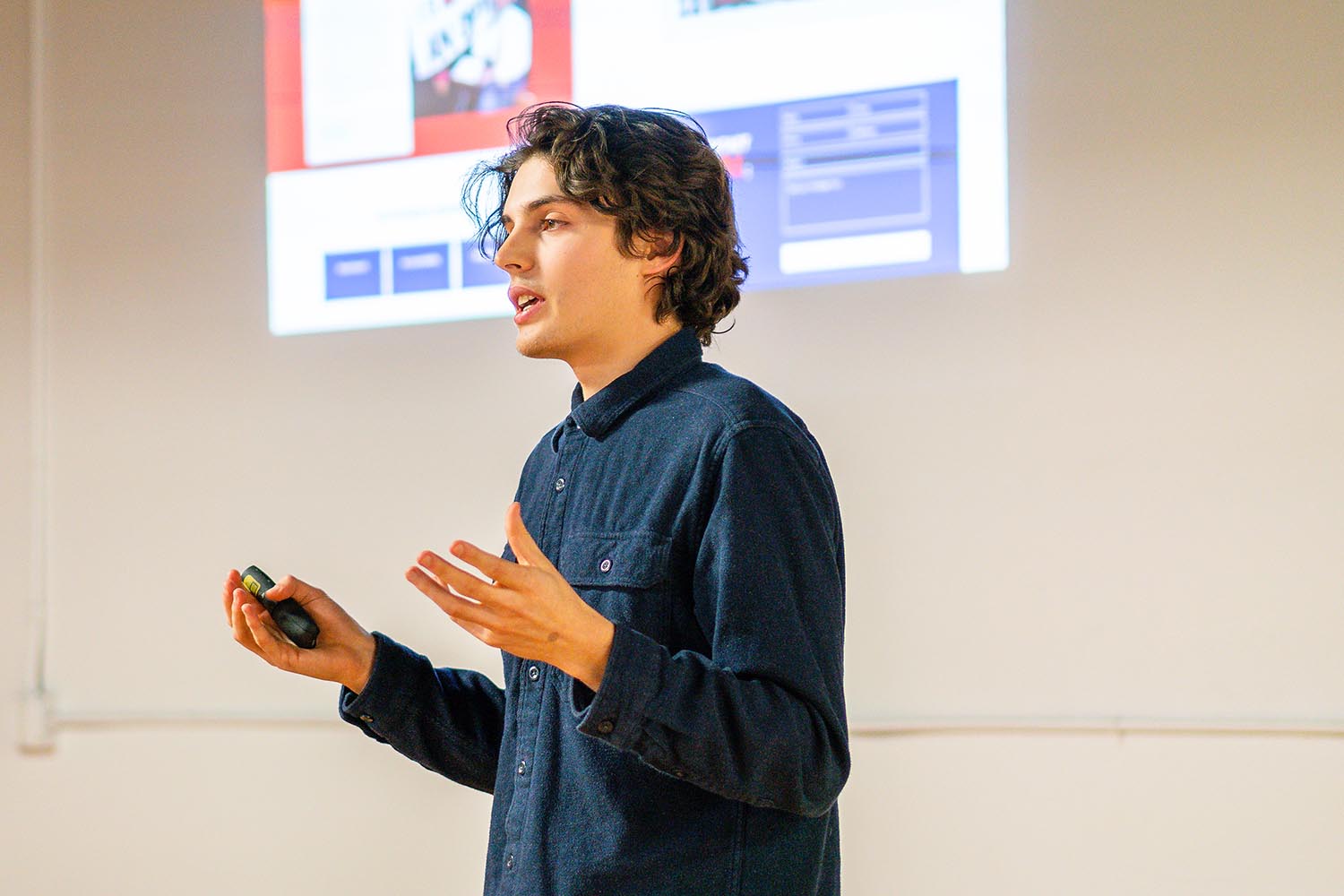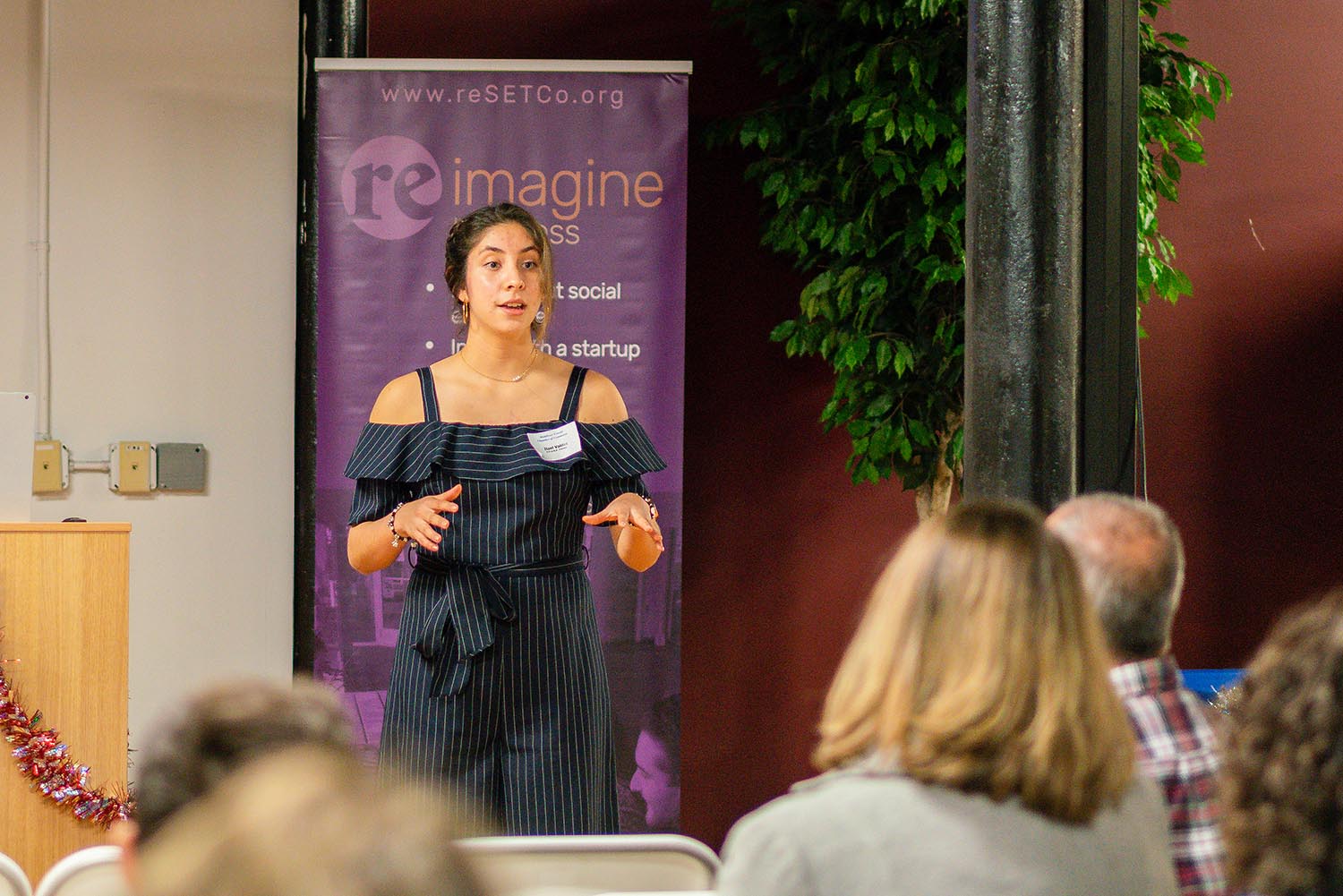Startup Incubator Class Pitches Ideas to Middletown Community
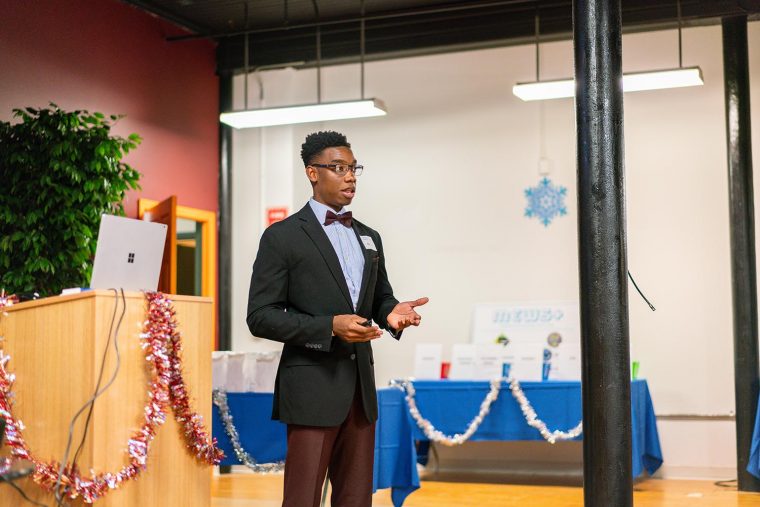
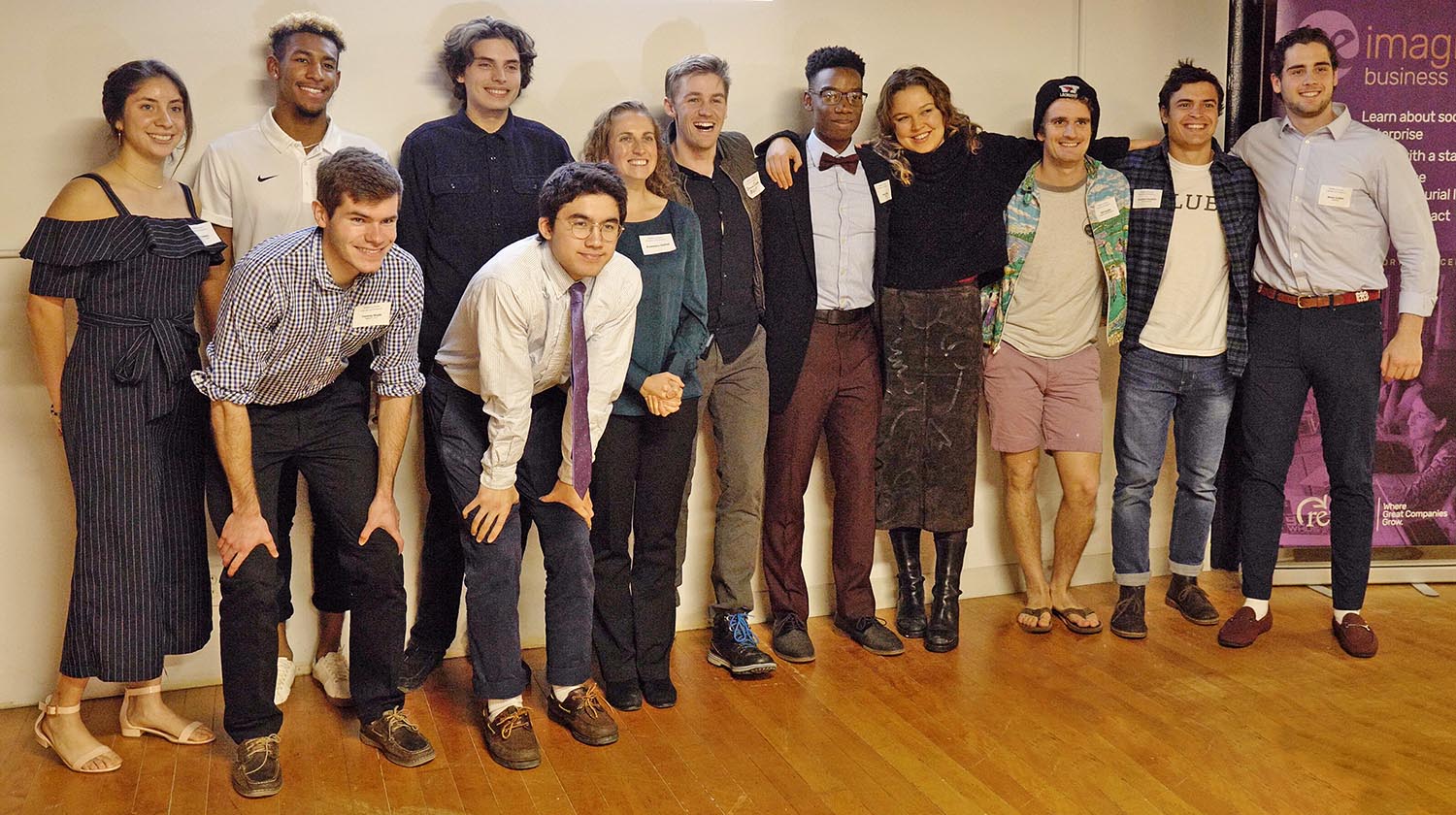
Eleven students from CSPL 239, Startup Incubator: The Art and Science of Launching Your Idea, took turns standing before an audience of their peers and members of Middletown’s Chamber of Commerce on the second floor of Main Street Market. Each offered a polished presentation detailing the need for their proposed startup, their mission, target market, and success indicators for the business, nonprofit, or community-based program they imagine. The evening was hosted through Collision-CT and the Middletown Entrepreneurs Workspace Plus (MEWS+). The course was made possible by CTNext and the Newman’s Own Foundation.
Taught this year by Visiting Assistant Professor of Environmental Studies Rosemary Ostfeld ’10, MA ’11, the course was initially developed in 2018 by Makaela Kingsley ’98, director of the Patricelli Center for Social Entrepreneurship, in collaboration with reSET, the Hartford-based social enterprise trust.
Kingsley emphasizes that the course is not just a business incubator. While some students will use it to develop products or services, Kingsley said, “I think of it as ‘next-gen project-based learning’: it’s about translating theory to practice.
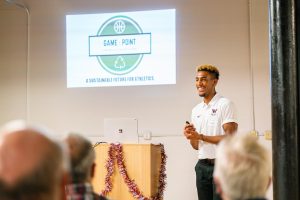
“These students are learning the habits and practices of taking an idea and making it real,” she said. “Those are mindsets they’re going to use over and over again. It’s the mindset integral to interdisciplinary thinking, to exploring the ways one’s major can inform what one does after Wesleyan.”
Ostfeld, the entrepreneur-in-residence at the Patricelli Center this semester, concurs. After her first year at Wesleyan, she spent the summer working on an organic farm near her home. Now, after a PhD in land economy at the University of Cambridge as a Cambridge Trust Scholar, she is getting ready to launch her own startup, Healthy Planeat.
“Launching a startup is so different from getting a grade when you take a test or write a paper,” she explained. “A business can grow in so many different ways. So many potential processes could or could not lead to ultimate success. The uncertainty can be challenging for students. And sometimes a concept might not work out, but then it opens up a new opportunity. It’s a very different skillset from what they’ve learned in more structured academic environments.”
Additionally, community involvement is key to the process. “One of the major goals of the course was to create an environment where students were speaking with experts to learn more about the topics that they were interested in pursuing for their startups,” Ostfeld said, who noted that several mentorship days and outside speakers were important assets through the semester. “It was a collaborative effort with Middlesex Chamber of Commerce, reSET, and Wesleyan.
“We needed these partners: you can’t just design a business in a vacuum. You need to get out of the ivory tower and talk to people and try things and get involved with the community.”
Voting was just for fun and no official prizes were awarded at the event. The projects that received the most votes were GamePoint by Daniel Banks ’22 and Maddie Clark ’22; Spark by Itzel Valdez ’23, and 3. ONA by Ona Hauert ’20. To see more about the presentation and pitches, click here.
Photos below by Nick Sng ’23.
